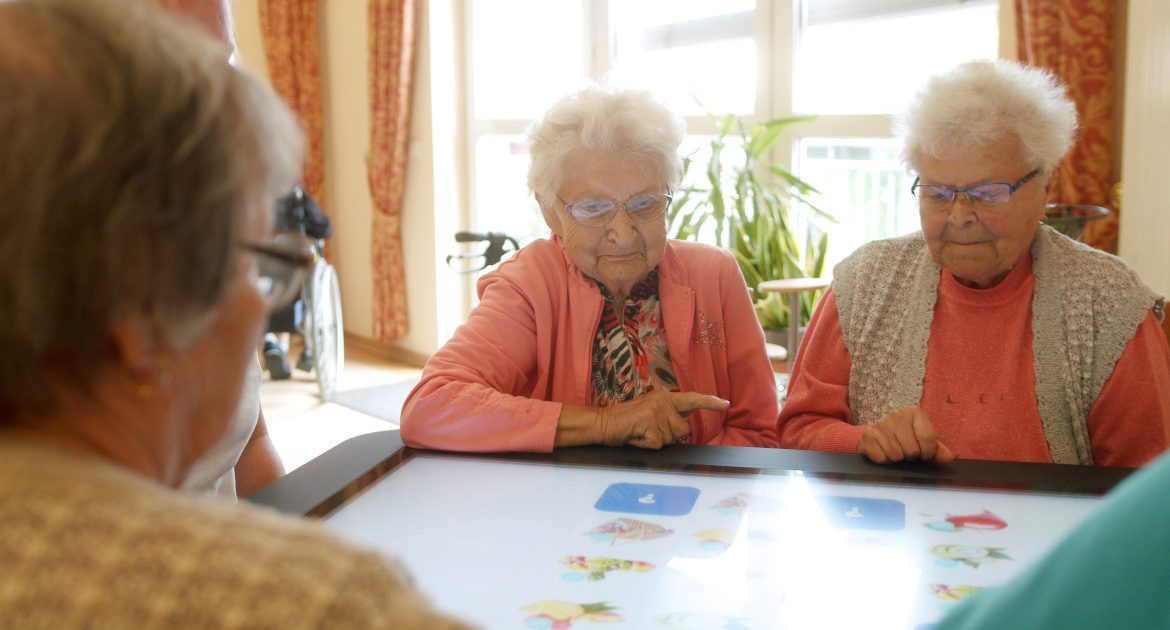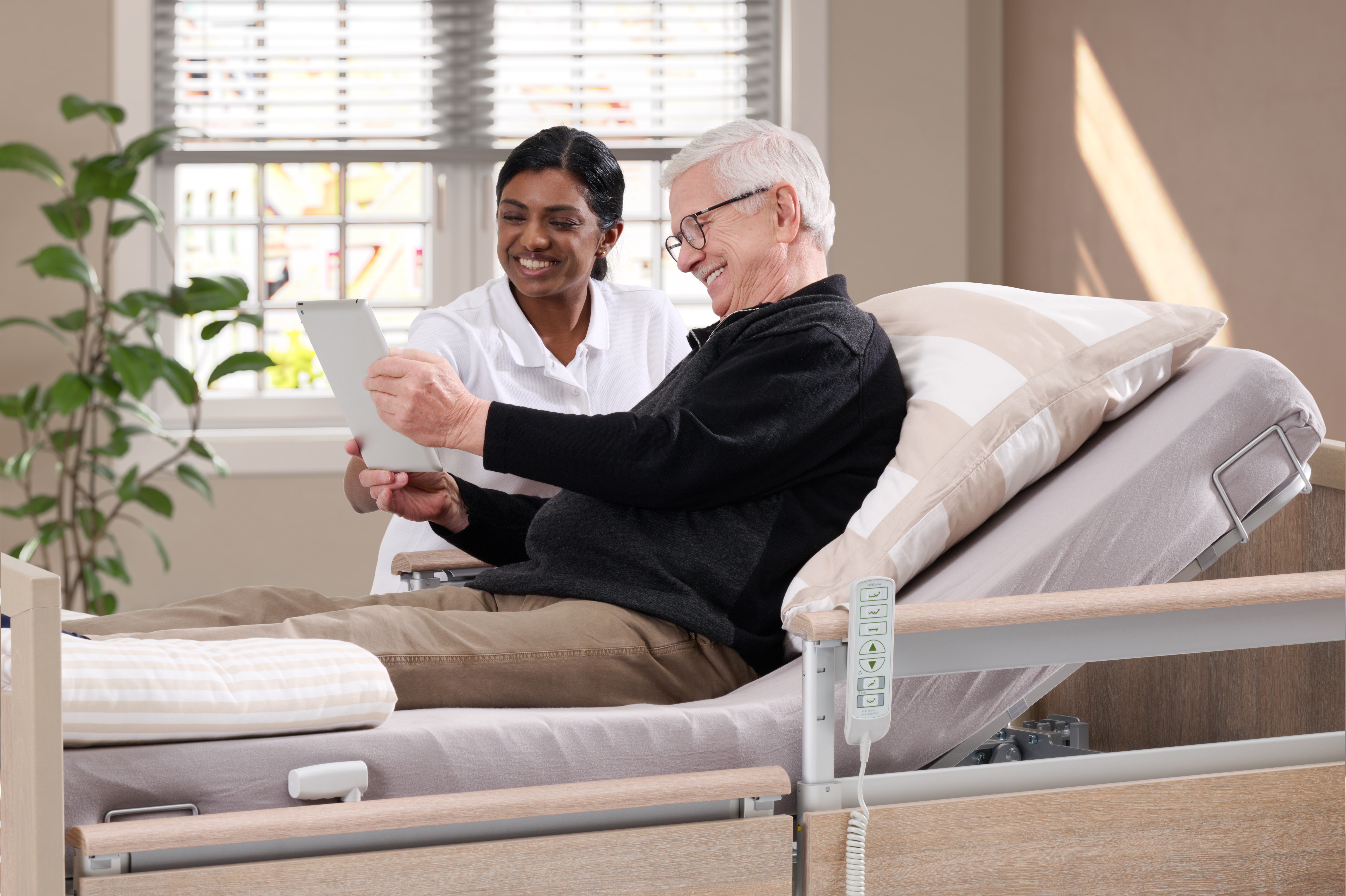Playing games, singing familiar songs, having conversations: Social care in senior living facilities can be all of these things. But it’s also so much more.
As they age, seniors often lack daily structure and social rituals. Skat night, for example, is omitted because the walk to the neighbor’s house with a walker is too complicated. Or seniors simply lack contacts for socializing because many friends have already passed away. In these and many other situations that become voids with age, social care steps in: it offers a daily program on a voluntary basis. „Social work wants to contribute to making everyday life structured and accompanied,“ says Susanne Bokelmann, editor-in-chief of „Praxis: Soziale Betreuung.“
The care program is intended to increase the well-being of seniors. „Because a clear daily routine provides security and orientation,“ comments the Pro Care Management Academy from Bonn. The anticipation of the self-chosen daily program provides a reason to get up – a task for the day. Yet no two programs are alike. The scope of social care becomes apparent when taking a closer look at the offers for individual and group care.
Individual care: Stimulating the individual
For the Heerlein-Zindler Foundation, individual therapy means activating seniors‘ sensory perception, promoting mobility and agility, and maintaining mental and motor skills. The program is tailored to the individual and is as varied as the person themselves. It ranges from simple conversations, to walks with activating training exercises, to biography work. „Personal abilities or interests can be rediscovered and promoted with the help of biography work, for example,“ informs the Pro Care Management Academy.
The profound conversations about the seniors‘ past serve not only as an exchange that can awaken positive memories and feelings. The activity also serves as a targeted memory exercise to strengthen cognitive abilities. Individual therapy is especially valuable for those suffering from dementia – who are often still perfectly at ease in the thought world of the past. Be it for targeted biography work or other memory training. „The sense of achievement ensures increased self-confidence,“ says the Pro Care Management Academy, pointing out the positive effect.
Group care: Promoting social interactions
Social care doesn’t just happen alone, however. Group services are particularly valuable for seniors. „We place a high value on social integration and participation,“ the Heerlein-Zindler Foundation states on its website on the topic. That’s exactly what group care can deliver. And it does so without ignoring the needs of the individual. „That’s why we approach each participant individually and take their biography into account,“ the foundation adds. After all, social care should be fun and offer added value for everyone taking part. Not overtax or even underchallenge.
For example, seniors can exercise together in seated gymnastics, warble familiar songs in a singing circle, exchange the latest news in a reading circle, boost their memory in bingo, or share old favorite recipes while cooking together. Group care is wide-ranging. So is the impact of the time spent together: depending on the program, it promotes seniors in the motor, linguistic, cognitive, social or perceptual areas. „In the process, the creation of a community is supported, in which everyone feels accepted and experiences positive emotions in being together,“ summarizes Pro-Pflege-Management online. This counteracts loneliness and isolation.

Social care: Much more than entertainment
Social care is therefore so much more than just singing in a circle of chairs. It’s learning from each other, appreciating each other, and belonging. The social care workers bring variety and joy to the often dreary daily lives of seniors. The program varies from facility to facility. But they are always so varied that there is something for everyone. With the main focus on giving the elders of society quality of life, activating or promoting their abilities and letting them actively participate in everyday life.


